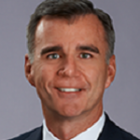Markets
Focus on IPOs Dents Life Science EPP Dollar Volume
|
In a year shaping up to be known as “life science bulls gone wild,” a fervor that has fueled a gusher of initial public offerings and rising stock prices, publicly traded growth companies in the industry will end 2013 with fewer equity private placement dollars despite brisk deal making. Biotech and pharmaceutical companies raised $2.7 billion in 120 growth EPP transactions for an average of $22.5 million per deal through early December in 2013, according to PlacementTracker, a service of Sagient Research. That’s a substantial decrease from the $4.1 billion that the issuers raised in 134 placements for an average of $30.6 million in all of 2012. (Growth EPPs are offerings of a least $1 million of stock or equity-linked debt that feature fixed purchase, conversion and warrant exercise price terms. The data includes only growth companies that have market capitalizations from $10 million to $1 billion and a share price of at least $1 at closing.)
Follow-on offerings also have outpaced private placements: Biotech and pharmaceutical issuers have raised nearly $2 billion in 33 transactions this year versus $887 million in 16 deals in 2012, according to PlacementTracker. Yet biotech and pharmaceutical issuers continued to increase their use of at-the-market offerings in 2013, giving them more flexibility to raise cash in the coming months.




